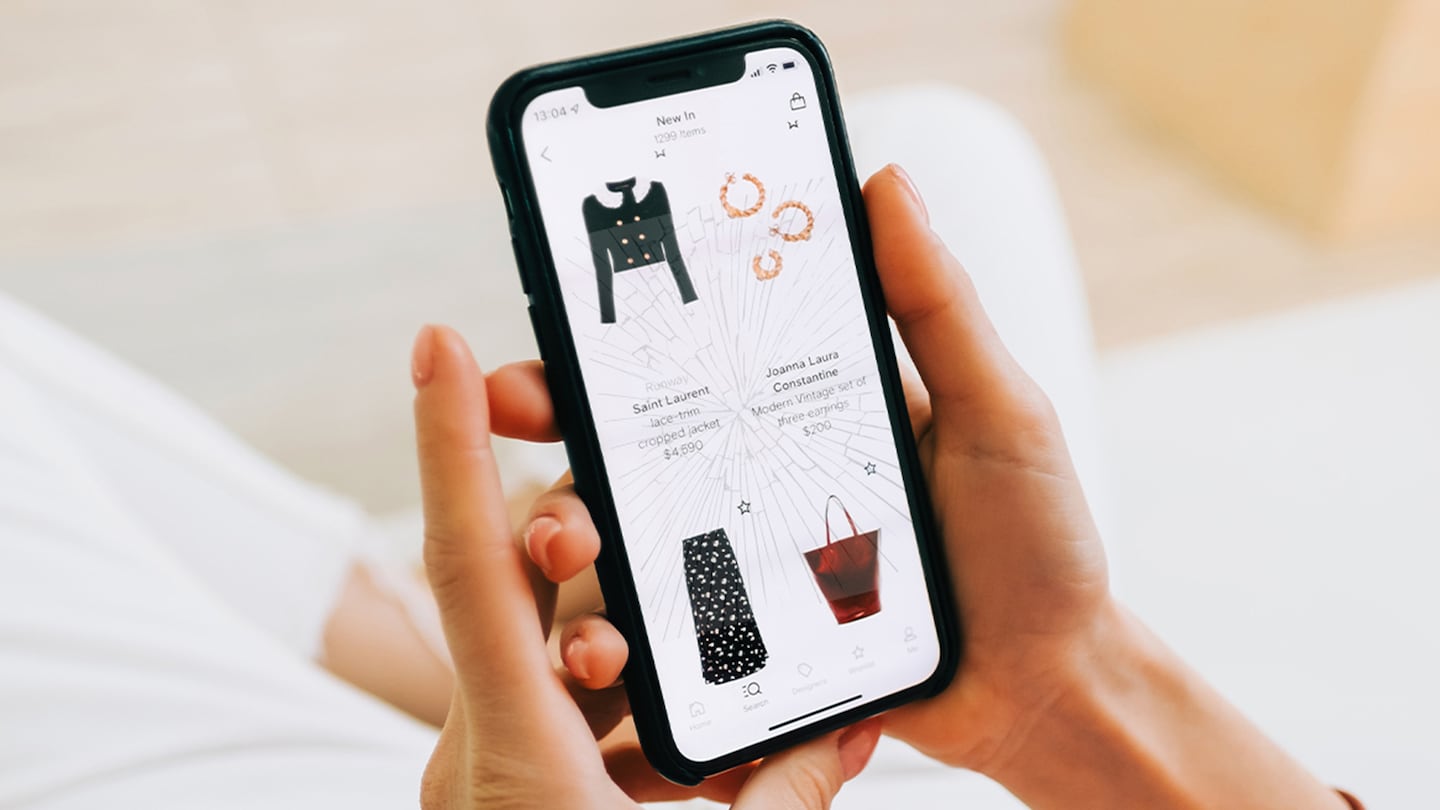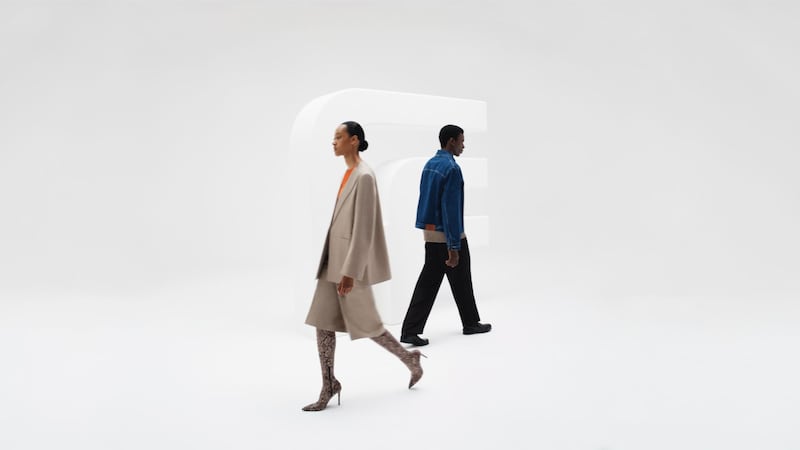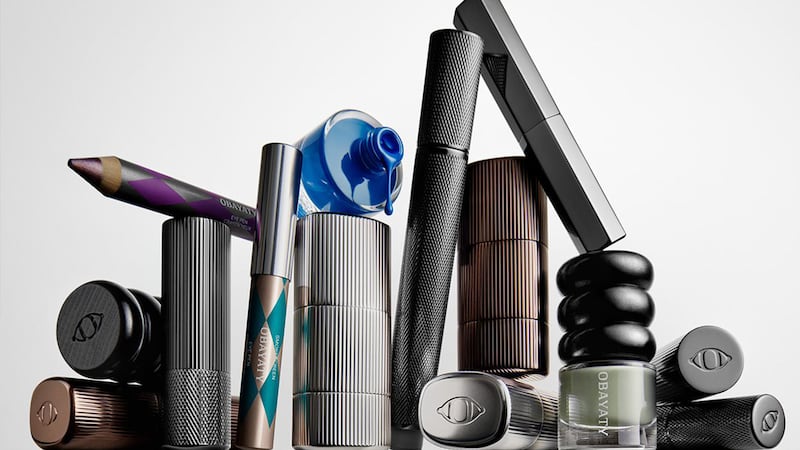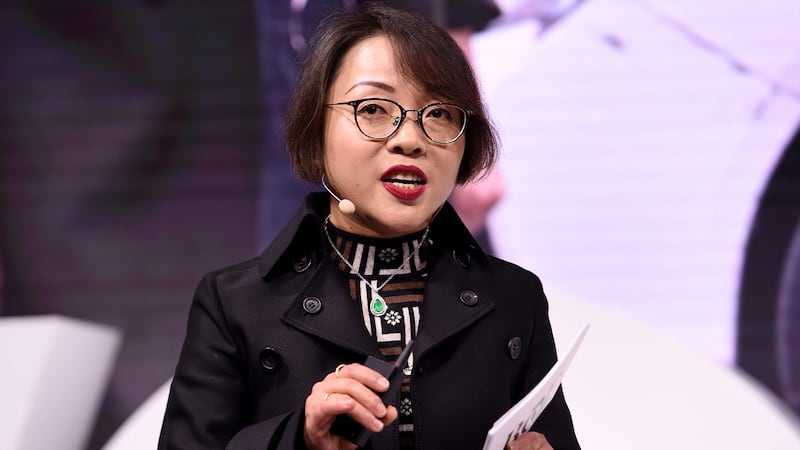
The Business of Fashion
Agenda-setting intelligence, analysis and advice for the global fashion community.

Agenda-setting intelligence, analysis and advice for the global fashion community.

The crisis at Farfetch has been well-documented over the past week — but its woes are hardly singular in online luxury.
Following a report in The Telegraph that Farfetch chief executive José Neves was in talks to delist the company, BoF reported on Monday that the fashion tech giant was seeking cash to fund operations. Those include tapping existing partners for investment and selling off assets like the brand incubator and distributor New Guards Group (the licensee of Off-White).
The news has put the fate of another under-performing luxury e-tailer in jeopardy: Farfetch had been set to acquire a 47.5 percent stake in competitor Yoox Net-a-Porter, with plans to purchase it entirely within the next three to five years; the deal had received a green light from EU regulators in October. YNAP parent, the Swiss luxury conglomerate Richemont — also an investor in Farfetch — wants the e-commerce site off its own books; in November, it reported YNAP sales fell 10 percent in the first half of 2023 and implied losses of €128 million ($137 million) from YNAP’s operations during that period.
But online luxury’s problems go beyond Farfetch and YNAP. Montréal-based Ssense, which does not disclose revenues, cut its workforce by 7 percent in January, citing slower growth. Last month, MatchesFashion reported 2022 results including widening losses of £33.7 million and a third consecutive year of slipping sales. Meanwhile, Munich-based online destination Mytheresa reported a sales growth slowdown in September. The company’s gross merchandise volume — a measure of goods sold on the platform — rose 3 percent year over year to €204 million, compared to a 13 percent increase in the previous quarter.
ADVERTISEMENT
Even T Mall-owner Alibaba — which always had an advantage in its powerful network of exclusive logistics partners and integrations with Chinese payment and messaging apps — has shown signs of pressure amid rising competition from scrappier rivals like Pindoudou, Temu and Douyin. The group sought to raise funds by spinning off various units, including its cloud computing division earlier this year (the IPO has since been shelved). The e-commerce giant’s shares have fallen by roughly three quarters since their 2020 peak.
But why are today’s luxury e-commerce players struggling to survive — let alone thrive?
Some of the multi-brand luxury model’s challenges go back to its inception. Customer traffic — a key value add wholesalers offer brands — is expensive to attract online, thanks to rising rates at online ad giants Meta and Google, and nearly impossible to retain. Nearly all the players in the space offer a similar user experience, from their product assortments to sleek, black-and-white branding, leading to rampant comparison shopping. Pricing is often the only way to stand out, forcing a race to the bottom.
Logistics costs have also always been high. For the most expensive, least return-prone items like a $1,400 Prada handbag, offering a high-touch, luxurious experience can be profitable. But margins are slimmer when offering speedy shipping and easy returns for marked-down, end-of-season wardrobe fillers. Whenever websites charge customers for those services, it incentivises people to go shopping in person.
Investors have spent years pouring money into e-commerce darlings, betting that as adoption of e-commerce increased, operating at a bigger scale would ease the challenges of turning a profit. That hasn’t been the case. Even for behemoths like Farfetch, the landscape has only gotten more competitive, as nearly all brands operate their own e-commerce platforms, limiting the need for intermediaries.
In-person shopping is also seeing renewed interest post-pandemic, and luxury houses are investing heavily in rolling out bigger and better stores. Fashion capitals now feature mega-boutiques that are true destinations, offering immersive brand experiences that incorporate restaurants, art exhibitions, events and spa services. Plus, brands like Gucci and Hermès have rolled out new locations in smaller cities in the US such as Austin, Denver or Nashville, further limiting the appeal of ordering online.
For brands, there are upsides to investing in their own digital presence: even if some e-commerce sales are less profitable than they would be in store, being able to showcase their full offering on their own websites is worth it. When customers can do research online ahead of time, they come into stores determined and well-informed. As well, niche items are more likely to find buyers online, and brands are able to acquire heaps of valuable customer data.
The likes of Yoox Net-a-Porter and Farfetch, by contrast, don’t share the opportunity to cash in on their online showrooming activities in the physical realm. After getting out ahead of the e-commerce boom, both companies have tried providing white-label support to brands selling online. But big brands have increasingly chosen to bring those operations in house, while smaller labels often find that ready-made e-commerce platforms, like Shopify, suffice.
ADVERTISEMENT
The macro-economic environment has also changed: The end of a decade of ultra-low interest rates is hitting the luxury economy hard, particularly among aspirational shoppers. With travel and experiences on hold during the pandemic, customers were able to fall back in love with stuff, shelling out for luxury bags and shoes.
Now, more customers have to choose between a vacation or a handbag — or homeownership. Luxury sales will likely rise 1 to 4 percent next year, compared to 8 percent growth at constant currency in 2023, consultancy Bain forecasts.
E-commerce players are likely to be doubly punished by rising interest rates, as higher yields on safe investments have led markets to become less interested in placing bets on loss-making businesses.
“These platforms that had promised to bring physical multi-brand retail, the grands magasins, online are finding out that online is a completely different world,” e-commerce expert and advisor Michel Campan said. “Ultimately, raising money is the thing these companies were actually good at. But eventually investors’ patience runs out.”
THE NEWS IN BRIEF
FASHION, BUSINESS AND THE ECONOMY

Alibaba president exits Farfetch board. J. Michael Evans resigned from the luxury e-tailer’s board effective Nov. 30, two days after The Telegraph reported that Farfetch chief executive José Neves was in talks with top shareholders, including Alibaba and Richemont, to take the company private.
ADVERTISEMENT
Farfetch seeks ‘white knight’ to avert collapse, sources say. Insolvency is not out of the question for Farfetch as the company explores a range of options to keep its business afloat amid a weakened cash position, The Business of Fashion has learned.
Lululemon sales growth is slowing ahead of the holidays. The company’s fourth-quarter revenue guidance trailed Wall Street estimates. Revenue in the holiday quarter is expected to be up 13 percent to 14 percent over last year, down from 19 percent growth seen in the three-month period that just ended.
Zegna aims to open 50 Tom Ford retail stores, double group margins. At an investor day in New York, the Italian luxury group laid out plans for the Tom Ford brand for the first time, with ambitions to ramp up womenswear, including shoes and accessories.
Advocacy groups lay out demands for fashion at the UN Climate Summit. The list includes calls for policymakers to hold the industry accountable for environmental and labour abuses and incentivise more responsible practices.
Inditex shares are overvalued, Deutsche Bank analysts say. Shares in Inditex dropped 1.3 percent to €38.01 ($41.04) in Madrid, trimming their year-to-date gain to 52 percent. The stock has only one other sell or equivalent rating, in addition to 21 buy recommendations and 11 holds, among analysts tracked by Bloomberg.
Adidas launches Fear of God Athletics collaboration. The long-awaited collection includes performance garments, technical apparel, sneakers and duffel bags. Pop-up experiences in Los Angeles, New York, Beijing and Shanghai were held during launch week.
Big brands’ slow climate progress puts targets out of reach, report finds. Companies including Nike, Levi’s and Inditex have managed to curb their planet-warming emissions over the last five years, but remain off track to meet 2030 goals, analysis by climate group Stand.earth finds.
UK Christmas sales are off to a weak start on delayed spending. Total sales grew 2.7 percent in November, compared with 4.2 percent growth a year earlier. Festive spending is forecast to drop 13 percent to £20 billion ($25 billion) this year.
Temu extends lead over Shein in US as shoppers embrace a bargain. Sales on the platform jumped 29 percent from a month ago to a new record, according to data from Bloomberg Second Measure. As well, as of last month, Temu accounted for nearly 17 percent of market share in the United States at discount stores, according to data analytics firm Earnest Analytics.
Jonathan Anderson, Maximilian Davis and Martine Rose among winners at Fashion Awards 2023. The event drew an international crowd, with high-wattage names like Gwyneth Paltrow and Anne Hathaway to pay tribute to Valentino Garavani, but British design talent took centre stage.
US retail lobbyists retract key claims on ‘organised’ retail crime. The lobbying group had initially claimed that nearly half of all inventory losses in 2021 were a result of organised crime, but the percentage of shrink attributed to external theft has largely remained around 36 percent since 2015.
Amazon targets Shein with big fee cuts for cheap apparel sellers. Amazon announced it would reduce commissions on clothing priced below $15 to 5 percent while items priced $15 to $20 will drop to 10 percent — both previously had been 17 percent — beginning in January.
Gulf luxury recommerce market to hit $780 million by 2026, Chalhoub Group forecasts. The Middle East region’s secondhand luxury sector is growing slower than in other markets, with interest in sustainability still nascent among consumers and cultural stigma remaining around pre-owned items, according to a report by the Dubai-based retail giant.
Thom Browne to curate Sotheby’s ‘Visions of America’ auction series. The designer and CFDA chairman will front the auction house’s January sale of American paintings, furniture, ceramics and other objects, including a fashion selection in partnership with the CFDA. An exhibition will run from Jan. 12 to 20, with sales to follow from Jan. 20 to 29 in New York.
‘Substantial volume’ of clothing tied to Uyghur forced labour entering EU, says study. Dozens of well-known brands including H&M and Zara are identified as being at high risk of sourcing materials, particularly cotton and PVC, made by Uyghurs compelled to participate in state-imposed labour transfer programmes.
US banking regulator warns on risks of ‘buy now, pay later.’ Consumers with fewer dollars to spend are increasingly turning to “buy now, pay later” loans, with a record number borrowing nearly $1 billion in the Black Friday period. The warning was the latest sign that federal regulators are scrutinising the increasingly popular form of consumer credit.
Angelina Jolie’s Atelier Jolie opens its first store. The Oscar-winning actress’s new fashion venture opened its doors Tuesday at 57 Great Jones Street in New York’s NoHo neighbourhood. At Atelier Jolie, design responsibilities are shared by a global group of artists, artisans and textile designers.
THE BUSINESS OF BEAUTY

New celebrity-backed men’s beauty brand Obayaty debuts. The line, backed by music producers Max Martin and Savan Kotecha, features colour cosmetics in bold shades as well as skin products. The brand launched direct-to-consumer and with Selfridges.
Amyris brands sold at auction. British beauty e-commerce company THG snapped Biossance for $20 million, according to documents seen by BoF. The auction came after the company filed for Chapter 11 bankruptcy in August.
L’Oréal acquires probiotic research company Lactobio. The acquisition will allow L’Oréal to build upon its microbiome research. The company said they will use Lactobio probiotic and postbiotic ingredients to develop topical products with benefits for skin and hair.
Shiseido faces the steepest cut in target price on weak demand in China. The average target price has fallen 13 percent over the past month. Data compiled by Bloomberg showed that the fall is the largest among Japanese companies with a market cap greater than ¥1.5 trillion ($10 billion).
Boots opens its first beauty-only store. At over 11,000 square feet, the store will include new-to-Boots brands such as Ariana Grande’s cosmetics line R.E.M Beauty and Gen-Z skin care label Bubble. Boots Beauty will also offer masterclasses, a fragrance refill station and digital fragrance finder tool, beauty product recycling services, and hair styling sessions.
P&G to record up to $2.5 billion in charges related to Gillette business and company restructuring. The consumer goods giant said it would take a $1.3 billion non-cash impairment charge before tax in the current quarter ending Dec. 31 on its Gillette business, which it acquired in 2005.
Shiseido launches venture investment fund. Shiseido Long Term Investments for the Future (LIFT) Ventures will identify and invest in early-stage companies in the beauty and wellness sector. This is the first venture fund Shiseido has launched in the Western hemisphere.
PEOPLE

Lanvin Group replaces Joann Cheng with new CEO. Cheng will be succeeded in the CEO role by Eric Chan, a senior executive at a subsidiary of Lanvin-parent Fosun Group. Huang Zhen, another Fosun Group director, will take over as chairman.
Levi’s CEO Chip Bergh to retire. Bergh has served as chief executive of Levi’s for over a decade and will retire in April 2024. Michelle Gass, current Levi’s president, will succeed him.
Hailey Bieber’s Rhode names new president. Lauren Ratner has been promoted to the role following the departure of chief executive officer Melanie Bender in October. Ratner has worked with Rhode since 2020, before the brand’s launch, having previously held marketing positions at Reformation and Michael Kors.
Marie Claire appoints Andrea Stanley as executive editor. Stanley will begin the role effective immediately. She was previously the features director at Cosmopolitan and senior editor at Seventeen.
ReSee taps Vestiaire Collective co-founder as CEO. Sebastien Fabre will lead the Paris-based vintage start-up as it seeks to scale its platform and extend sourcing operations to the US. Other priorities include customer retention and re-engagement.
MEDIA AND TECHNOLOGY

ByteDance offers investors a buyback at a $268 million valuation. The TikTok parent is offering to buy back up to $5 billion from investors, according to people familiar with the matter. The new offer is pitched at $160 per share.
Paris creative agency Petit Ami acquired by WMH Project. With the boutique acquisition, WMH Project is boosting its exposure to luxury and fashion clients. The agency’s recent projects include a showroom for Mugler and scenography for an exhibition at the Villa Noailles showcasing garments by Y/Project and Diesel creative director Glenn Martens.
Compiled by Yola Mzizi.

Robert Williams is Luxury Editor at the Business of Fashion. He is based in Paris and drives BoF’s coverage of the dynamic luxury fashion sector.

Malique Morris is Direct-to-Consumer Correspondent at The Business of Fashion. He is based in New York and covers digital-native brands and shifts in the online shopping industry.
The designer has always been an arch perfectionist, a quality that has been central to his success but which clashes with the demands on creative directors today, writes Imran Amed.
This week, Prada and Miu Miu reported strong sales as LVMH slowed and Kering retreated sharply. In fashion’s so-called “quiet luxury” moment, consumers may care less about whether products have logos and more about what those logos stand for.
The luxury goods maker is seeking pricing harmonisation across the globe, and adjusts prices in different markets to ensure that the company is”fair to all [its] clients everywhere,” CEO Leena Nair said.
Hermes saw Chinese buyers snap up its luxury products as the Kelly bag maker showed its resilience amid a broader slowdown in demand for the sector.